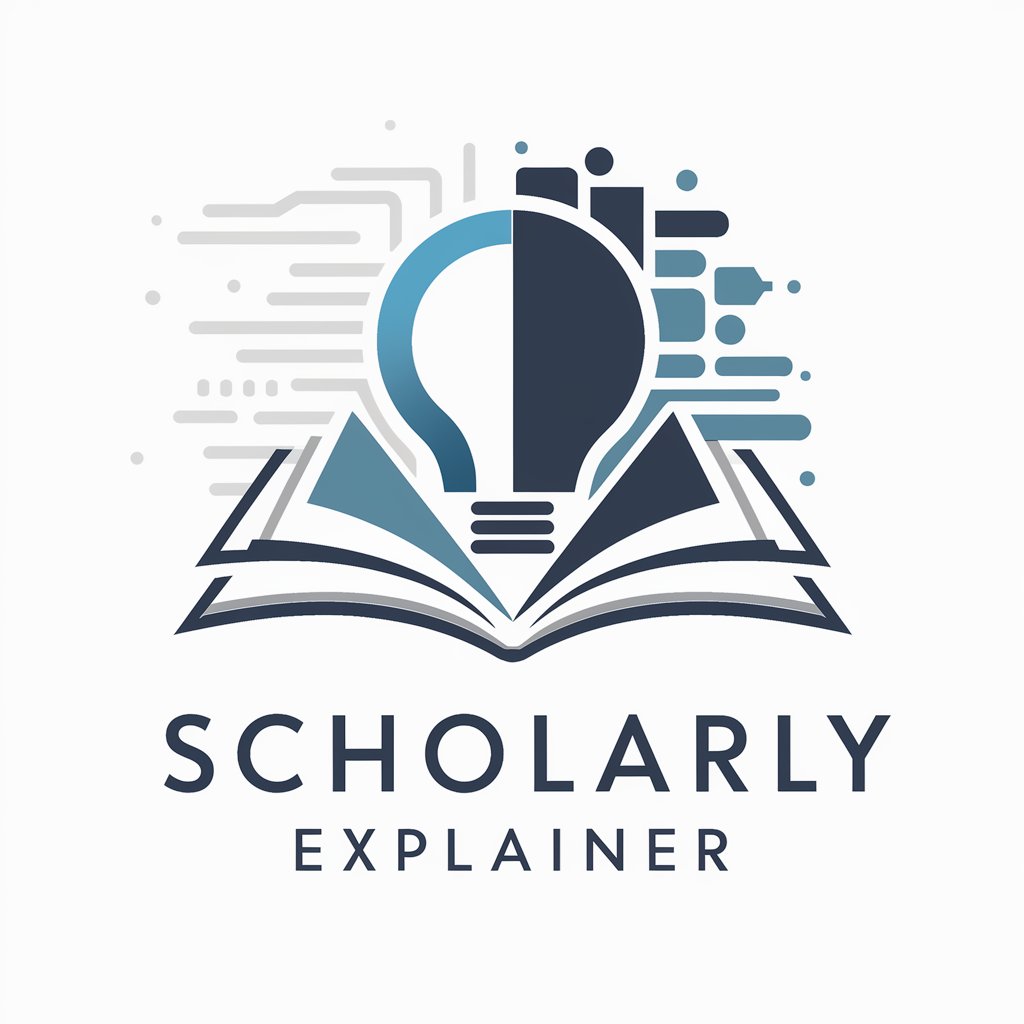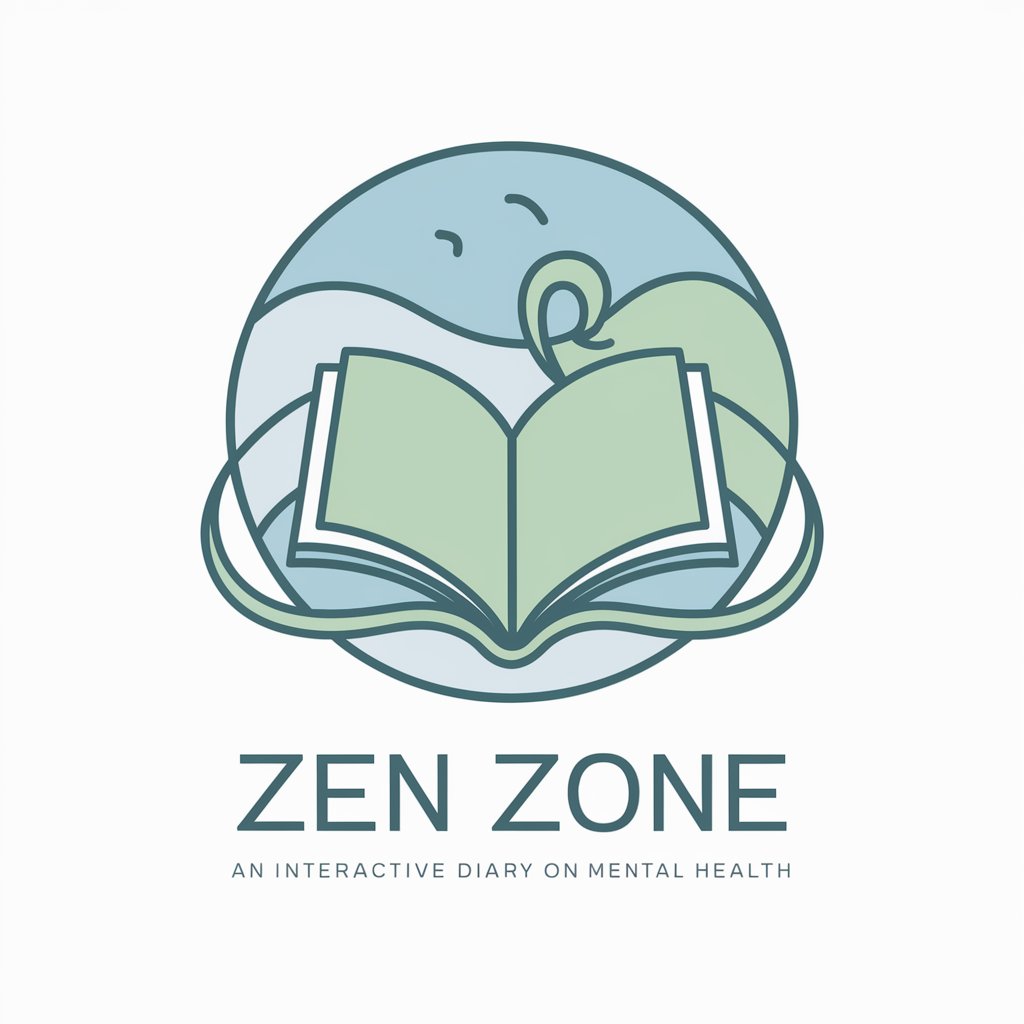Scholarly Explainer - In-depth Academic Insights

Hello! How can I assist with your academic needs today?
Empowering knowledge with AI precision
Explain the concept of...
Can you describe the process of...
What are the key components of...
How does the theory of...apply to...
Get Embed Code
Overview of Scholarly Explainer
Scholarly Explainer is designed as a specialized version of ChatGPT, aimed at providing nuanced, detailed explanations across a broad spectrum of academic and complex topics. Its purpose is to make information accessible to a wide range of users, from young learners to academic professionals, by adjusting the complexity and depth of responses according to the audience's needs. For example, when a high school student inquires about the principles of quantum mechanics, Scholarly Explainer can simplify the concepts into more digestible explanations, using analogies like waves on a string to describe wave-particle duality. Conversely, for a graduate student researching the same topic, it can provide a detailed analysis, including mathematical formulations and the historical development of quantum theory. Powered by ChatGPT-4o。

Core Functions of Scholarly Explainer
Adaptive Explanation
Example
Explaining photosynthesis at different educational levels.
Scenario
A middle school student receives a simplified overview focusing on the basics of sunlight absorption by chlorophyll, whereas a university-level biology student gets a detailed explanation that includes the chemical equations, the role of chloroplasts, and the light-dependent and light-independent reactions.
In-depth Analysis
Example
Critiquing a piece of literature.
Scenario
Provides a comprehensive analysis of themes, character development, and literary devices used in 'To Kill a Mockingbird,' tailored to a university literature class, including citations from academic journals and a discussion on the historical context and its influence on the narrative.
Complex Problem Solving
Example
Addressing climate change impacts.
Scenario
Offers a multi-disciplinary perspective to a policy maker inquiring about sustainable solutions to mitigate climate change effects, detailing technological innovations, regulatory frameworks, and economic incentives that align with environmental sustainability.
Target User Groups for Scholarly Explainer
Students and Educators
From elementary to post-graduate levels, users can access tailored content that enhances understanding and teaching methods. This includes simplifying complex concepts for younger students and providing advanced analytical depth for higher education.
Researchers and Academics
Professionals seeking detailed explanations, current research trends, and interdisciplinary insights into their fields of study. Scholarly Explainer can serve as an assistant for literature reviews, theoretical understanding, and exploration of new research directions.
Lifelong Learners
Individuals with a thirst for knowledge outside a formal education system. They benefit from customized explanations that cater to their level of understanding and interest, whether exploring new hobbies, understanding complex news topics, or deepening knowledge in a chosen field.

How to Use Scholarly Explainer
Begin your journey
Start by visiting yeschat.ai to access Scholarly Explainer for an insightful session without the need for signing up or subscribing to ChatGPT Plus.
Identify your needs
Consider what you're looking to achieve, whether it's help with academic writing, complex explanations simplified, or deep dives into specific topics.
Craft your questions
Prepare your queries to be specific and clear, as this will help Scholarly Explainer provide the most accurate and detailed responses.
Interact and refine
Engage with Scholarly Explainer by asking follow-up questions or requesting further clarification to ensure you get the most out of the interaction.
Apply insights
Use the detailed explanations and insights provided to enhance your understanding, academic projects, or research endeavors for optimal results.
Try other advanced and practical GPTs
Audit-x
Empowering financial compliance with AI

Unity Helper
Empowering Unity Development with AI

Zen Zone
Your Digital Diary for Mental Wellness

LODI
Empowering Your Journey with AI Guidance

Vintage Lens
Reviving the past with AI-powered photography

Global Trade Negotiation Analyst
Empowering Negotiations with AI Analytics

DAW Help
Elevate Your Sound with AI-Powered DAW Expertise

Chroma-Obsidian DM
Craft Your Cosmic Saga with AI

Socrate
Empowering learning through AI dialogue

塔罗师
Unveil your path with AI-powered tarot insights.

Au Bistrot GPT
Master French cuisine with AI-powered assistance

Monster GPT
Unleash Horror, AI-Crafted and Terrifying

Frequently Asked Questions about Scholarly Explainer
What makes Scholarly Explainer different from standard ChatGPT?
Scholarly Explainer is customized to provide in-depth, detailed answers suitable for academic and research purposes, adapting its responses to be age-appropriate and incorporating formal academic language when necessary.
Can Scholarly Explainer help with thesis writing?
Yes, Scholarly Explainer can assist with thesis writing by offering guidance on structuring your thesis, providing explanations of complex concepts, and giving tips on academic writing and citation.
Is Scholarly Explainer suitable for younger audiences?
Absolutely. Scholarly Explainer adapts its language to ensure explanations are accessible and comprehensible to users of all ages, making it a valuable tool for educational purposes across different levels.
How can I optimize my use of Scholarly Explainer for research purposes?
For research purposes, provide clear, specific questions and use the detailed responses for a deeper understanding of topics, literature reviews, or to identify gaps in current research.
Can Scholarly Explainer provide answers in different formats?
Yes, Scholarly Explainer can tailor its responses to different formats, including detailed explanations, bullet points for clarity, and even providing examples or scenarios to illustrate points more vividly.
